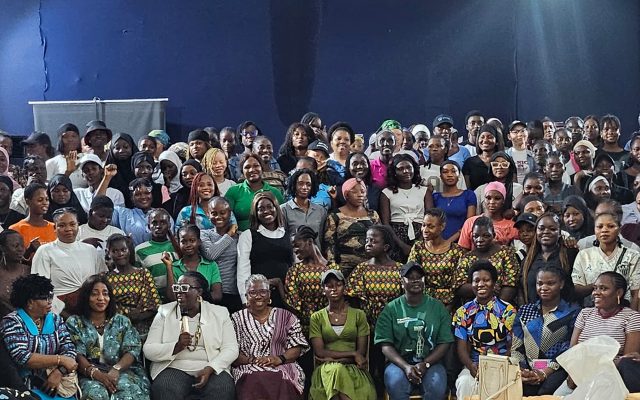Poised to create a safe space for adolescent girls and young women seeking information on their Sexual and Reproductive Health and Rights (SRHR), the Women Advocates Research and Documentation Centre (WARDC), in collaboration with the Center for Reproductive Rights (CRR), launched the National SRHR Hub for Adolescent Girls and Women (AGW).
SRHR Naija Hub, is designed to provide accessible information and resources to strengthen knowledge and understanding of sexual and reproductive health and rights. The event also witnessed a demo of the SRHR Naija Hub, web platform with participants, including persons living with disability across different clusters elated about the intervention, even as they discussed problems and solutions confronting them as girls and women.
Speaking at the launch, acting Executive Director, WARDC, Dr. Princess Olufemi-Kayode said the SRHR Naija Hub is a collaboratively created safe space to empower young women and girls by providing access to sexual and reproductive health and rights (SRHR) information, services, and leadership opportunities. It was developed as part of our CRR project in close partnership with youth advocates, health professionals, and community stakeholders to ensure that it meets young people’s (adolescents, girls and women) genuine needs and aspirations.
“The Hub offers peer-led education, digital resources, legal support, and referral pathways for SRHR services. It is not just a physical location; it represents a movement toward dignity, autonomy, and informed choice. For WARDC, this initiative is a strategic investment in the next generation of feminist leaders.”
One of the participants, Kehinde Oyagha, a Social Works student at the University of Lagos, said, “many girls, especially preteens, are naturally curious, but due to the internet, they often access wrong or harmful information about their bodies, this gap, leads to issues such as digital abuse and miseducation about reproductive health.”
She noted that creating a space where girls can learn from each other’s experiences, almost like a mini mentorship programme is important. “We want a space where girls can learn from each other’s experiences, almost like a mini mentorship programme.”
Oyagha stressed that leveraging social media and influencer culture is key to shifting narratives. “I would never underestimate the power of social media. If influencers can talk about these issues – consent, contraceptives, health – it normalises the conversation. We want a multidisciplinary approach, involving health professionals, psychologists, and government collaboration. Even local governments can endorse youth-friendly centers so young people know where to go for help.”



